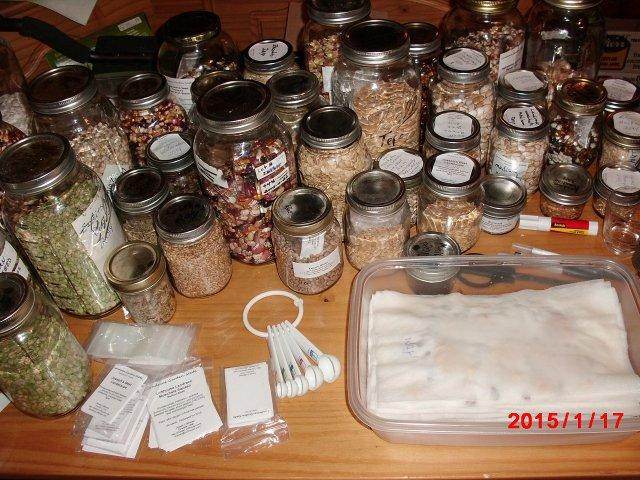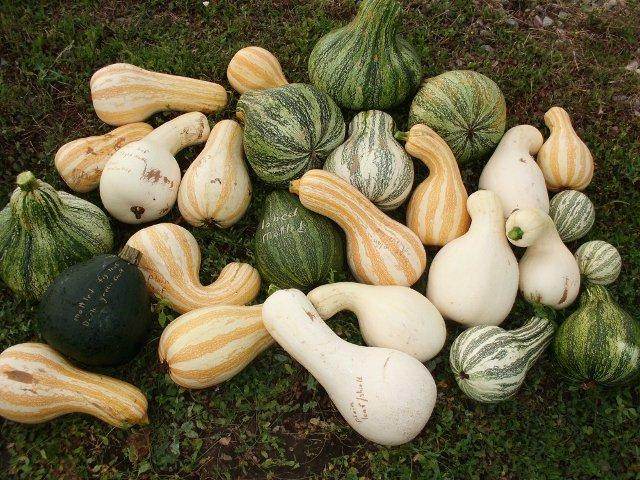My best seed bank is my community...
I have both an on-line community and a local community. I source nearly all of my seeds from my network of friends, family, associates, and collaborators. It is extremely rare for me to purchase seeds. The other day I bought three packets of seeds on the spur of the moment, but only because they were very rare, and I haven't noticed anyone in my seed bank network growing them before... They probably are, I just haven't paid attention.
In my valley I swap seeds routinely with other growers. We visit each other's gardens, and homes, and return home with pockets full of seeds. We mail seeds to each other. We cooperate together to develop new varieties. These are my favorite seed bank. Because what they offer me is locally-adapted enough to reproduce and make seeds. We have created a network of sharing that will continue regardless of whether there is an organization, or a database, or a bureaucracy, or grid power, or an Internet, or a postal service, or a monetary system. If one of us dies or moves away, the network continues. I barely have a glimpse into the scope of the network. I am constantly finding out things like: "the seed I got from Bob, was actually grown by Alice".
I attend seed swaps in the next valley over and swap seeds with the people there. We chat about how my varieties did for them, and how their's did for me. We talk about locally adapted bees, and fruit trees, and vegetables. We share techniques about how to grow crops that are difficult in our climate. We talk about storage, and food preparation.
I pack up archive copies of my garden, and send them out into the world. My close collaborators in similar climates might get a sample of every species and variety that I am growing. They can bank the seeds, or grow them, or give them away. I have really enjoyed the collaborations with growers in the Central Valley of California, and in Northern Colorado, because there are a lot of similarities between our gardens. Their seeds have worked well for me, and mine for them.
I swap seeds with collaborators in climates that are radically different than mine. That is where I get most of my varieties that are not typically grown around here. Okra, cowpeas, tepary beans, lagenaria squash, runner beans, mixta squash, etc... My favorites are the landraces, because even though 90% of what I receive might fail, there is often enough diversity in a landrace that something will eke out a meager existence and reproduce. By about the 3rd to 5th year I can usually grow the crop very well.
This is part of my at home seed bank. Glass jars protect against moisture, bugs, and mice.
I keep smaller seed banks in the barn, and at the homes of friends and family that are in different areas. I seal some of them in #10 steel cans for security. I'm intending to send an archive copy of my garden to the Rocky Mountain Seed Alliance's storage vault.
My real seed bank though is in the gardens of my friends, family, acquaintances, and collaborators. I am constantly gifting seeds to those around me. When I need seed in return, they are more than happy to provide for me.
My best seed bank is my community...

 3
3












 1
1





 5
5































 1
1









 3
3











